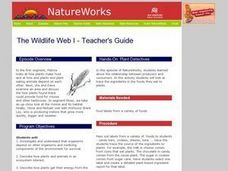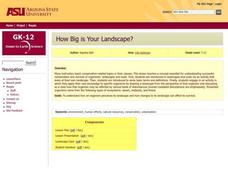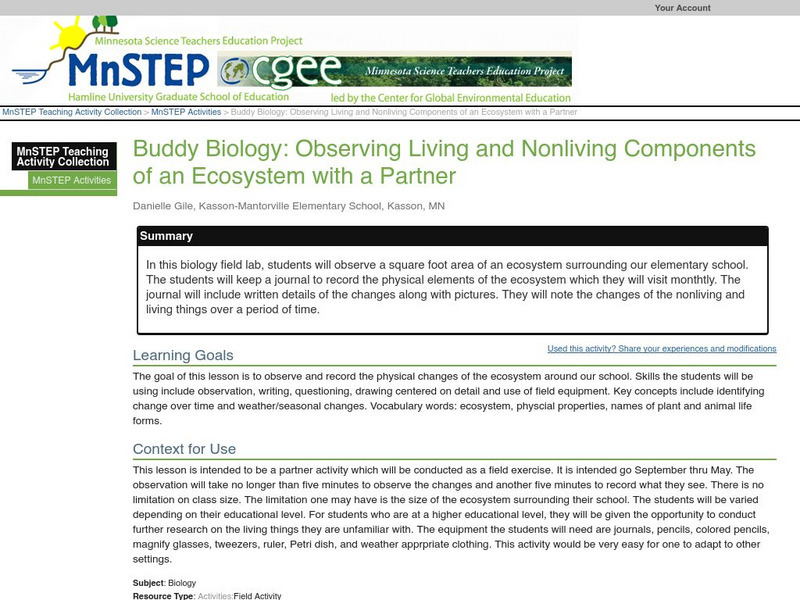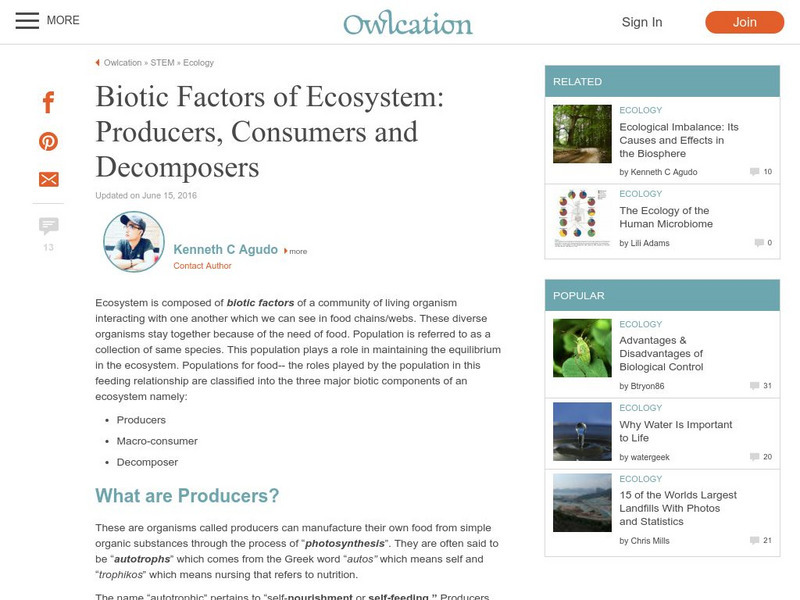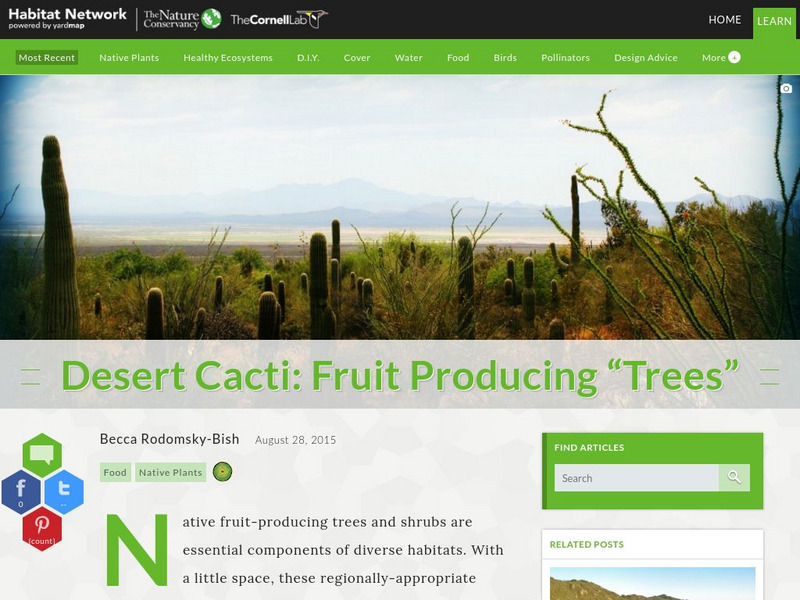Curated OER
Land Biomes Research and Presentation
Fifth graders work in cooperative groups to research an assigned land biome using various sources. Groups create either a book or a PowerPoint presentation of their assigned land biome.
Curated OER
Planet of Plenty
Students examine a small piece of land to determine the diversity of life on Earth. They role play as visitors from outer space seeing life on Earth for the first time. They measure and observe their plots while working in small groups....
Curated OER
A Tale of Two Reactors
Tenth graders role-play as members of the food chain. Sticky tables acting as polluting factors are introduced and members of different trophic levels suffer varying degrees of damage due to those pollutants.
Curated OER
Regions: Meet the Experts Presentation
Learners gather information and create a web site on prairies and plains using a variety of resources, including the internet.
Curated OER
Circle the Earth - Explore Surface Types on a Journey around Earth
Students use CERES percent coverage surface data with a world map in locating landmasses and bodies of water at Earth's Equator.
Curated OER
The Wildlife Web I
Students explore the relationship between producers and consumers. In this activity, they trace the ingredients in the foods they eat to plants. Supplement to Natureworks episode from New Hampshire Public Television, but activities may...
Curated OER
Notes on Cell Organelles
Young scholars record information and write journal entries on the structure and function of cell organelles while viewing a Powerpoint presentation.
Curated OER
How Big Is Your Landscape?
Students explore how an organism perceives its landscape and how changes to its landscape can effect its survival. Of particular focus is the effect of urbanization and the organisms survival in the cities.
Curated OER
Scientific Approach to Forest Management
Students use wireless laptop computers to collect, store, communicate, and organize data from the 1999 Jasper Fire area. They collect data in the field and compare it to student-collected data from prior years to develop conclusions...
Curated OER
Contaminated Water
Young scholars review and use the steps in the scientific method to complete the experiment. In groups, they research the importance of water to plants and animals in their local area. They examine how water can become contaminated and...
Curated OER
Snow on Sea Ice
High schoolers examine different samples of ice and predict the amount of snow that has fallen in a given year. Using a calculator, they graph the various thicknesses. They analyze the graphs to determine the relationship between the...
Curated OER
Solve the Mystery Photo
Students observe a mystery photo and use descriptive language to solve the mystery. In this descriptive language lesson, students use scientific observation to figure out a mystery photo. Students rationalize their thoughts with...
Curated OER
Make a Rain Stick
Students create a rain stick to imitate the nature sounds in a rainforest habitat. In this rainforest habitat lesson, students create a rain stick to mimic the cultural tools used in the South American rainforest. Students use paper...
Science Education Resource Center at Carleton College
Serc: Observing Living and Non Living Components of an Ecosystem With a Partner
For this activity students will observe a square foot of an ecosystem surrounding our elementary school. They will keep a journal to record the physical elements of their area. It will include both written details and drawings. They will...
Science Education Resource Center at Carleton College
Serc: Observing Living and Nonliving Components of an Ecosystem With a Partner
In this biology field lab, students will observe a square foot area of an ecosystem surrounding our elementary school. The students will keep a journal to record the physical elements of the ecosystem which they will visit monthtly. The...
Georgia Department of Education
Ga Virtual Learning: Ecosystems
This module offers an in depth study of the fundamental components of ecosystems. Activities include mini-lessons with videos and student assignments.
University of Michigan
University of Michigan: The Concept of the Ecosystem
Lesson looks at the definition of an ecosystem, biogeochemical cycles, and factors responsible for the differences between ecosystems.
National Geographic
National Geographic: Symbiotic Relationships in Marine Ecosystems
In this lesson students analyze videos to make observations about species, populations, and communities of organisms and discuss their symbiotic relationships. Then they create a hypothetical marine ecosystem and describe the adaptive,...
Other
Hub Pages: Biotic Factors of Ecosystem: Producers, Consumers and Decomposers
An ecosystem is composed of biotic factors of a community of living organisms interacting with one another which we can see in food chains/webs. These diverse organisms stay together because of the need of food. Population is referred to...
Other
Hub Pages: Abiotic Factors: A Component of Ecosystem
In the environment, there are external factors that really affect organisms living within it. One of these factors is the set of abiotic factors, or nonliving variables, such as wind, ocean, day length, rainfall, temperature, and ocean...
Alabama Learning Exchange
Alex: Making and Observing Life in a Terrarium
For this lesson, the young scholars will learn what a terrarium is, the layers of a terrarium, and the function of these layers. They will see how these components work together to create an ecosystem. This lesson plan was created as a...
SMART Technologies
Smart: Living and Nonliving Things
Students define the characteristics of living and non-living things, identify living and non-living components of an ecosystem, and identify the roles of organisms in living systems.
Cornell Lab of Ornithology
Habitat Network: Desert Cacti: Fruit Producing "Trees"
Find out why native fruit-producing trees and shrubs are essential components of diverse habitats.
Other
Grasslands Conservation Council of British Columbia
An overview of the ecosystems in British Columbia.





